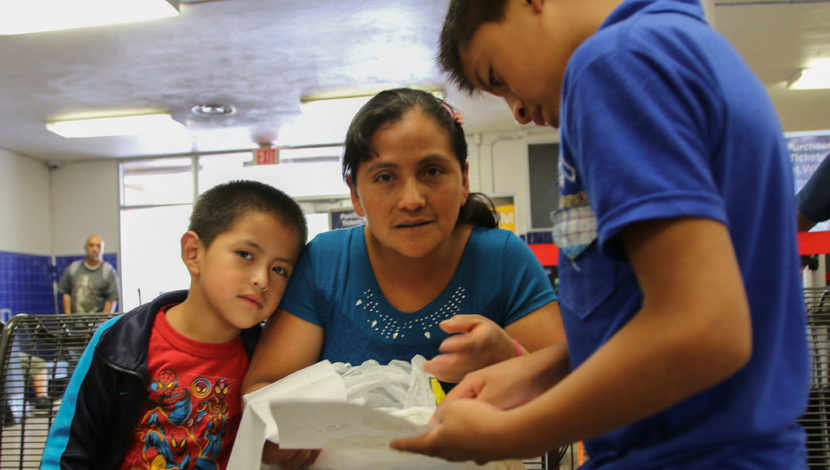The Unitarian Universalist Service Committee advances human rights through grassroots collaborations.
Long Road, Steady Progress

September 15, 2014
Holding Goldcorp Accountable in Guatemala
“Failure to respect indigenous people’s rights.” “Failing to respect the right to water.” “Failure to respect the human rights of local communities.”
So read excerpts from Human Rights Assessment of Goldcorp’s Marlin Mine, a May 2010 report prepared by On Common Ground Consultants five years after Goldcorp mining corporation’s Marlin mine first opened in rural Guatemala. Since 2006, UUSC has been working with local partners and the indigenous Sipakapense people to hold Goldcorp accountable for a host of human rights violations.
Shortly after Goldcorp opened the Marlin mine, reports from local residents of water contamination, skin diseases caused by toxic chemicals, and damage to homes from mining operations began to surface. It became increasingly clear that Goldcorp had not fulfilled its obligations to adequately consult with local residents in advance of the mine creation or developed a clear reclamation plan to mitigate environmental damage after the mine was closed.
Early on, UUSC partnered with the Commission for Peace and Ecology (COPAE) and UUSC member and volunteer Rob Robinson, a mining expert, to help set up a community- controlled water-quality monitoring project. Over the years, COPAE’s environmental experts and volunteers, who have been monitoring water quality at several locations around the mine, found elevated levels of sulfates, nitrates, aluminum, copper, manganese, and arsenic, sometimes above the maximum limits set forth by the World Bank in its guidelines for open-pit mining.
Together with COPAE, the Association of Indigenous Peoples of the Americas of Sipakapa (AIPAS), Robinson, and volunteer lawyer Molly Butler, UUSC has pursued a multifaceted approach — including legal challenges before the Inter- American Commission on Human Rights and Guatemalan courts as well as shareholder advocacy — to hold Goldcorp responsible for the damage it is causing. UUSC has supported ongoing reports on water quality monitoring and on the damage the mine has done to local houses, and these reports have been used as evidence in litigation and advocacy.
Here’s a recap of the progress that’s been made over the past several years:
2008
- Goldcorp shareholders call on the company to conduct human rights impact assessment of the mine.
May 2010
- Human rights impact assessment finds that Goldcorp has failed to respect many human rights of the indigenous people and communities around the mine.
- Inter-American Commission on Human Rights responds to petition from AIPAS and rules precautionary measures are necessary.
April 2012
- Guatemalan court agrees to hear petition that mining law is unconstitutional because it did not follow legal requirements for “free, prior, informed consent.”
- UUSC co-files a shareholder resolution requiring Goldcorp to implement a reclamation plan for the mine (estimated cost was $49 million, while Goldcorp only posted a $1 million bond).
- During annual shareholder meeting, Goldcorp commits to $27.6 million bond for reclamation.
September 2012
- The Guatemalan government, Goldcorp, and 18 indigenous communities sign an agreement stating that Goldcorp will pay for drinking water infrastructure to be designed by the government.
August 2013
- The Guatemalan government announces a temporary moratorium on mining extraction licenses while pressure in the mining areas increases from affected communities and civil society organizations.
This struggle is not over. Goldcorp has made some progress — such as installing a $9 million water treatment plant for its mining effluent — but local Sipakapense villages still await the construction of adequate water infrastructure. The impacts of the mining operations are wide-ranging, and it’s still not clear that Goldcorp’s reclamation plan is anywhere near sufficient. There is much work to be done, and UUSC is continuing to work with COPAE and AIPAS to ensure that the local communities and the Sipakapense people’s rights are protected and respected — and that violations are remedied.

